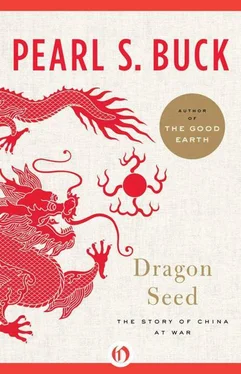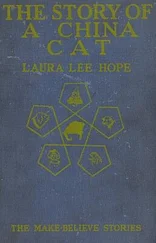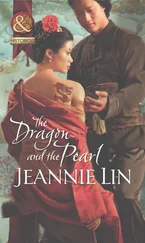This he had done for years enough so that now when he came through the great gate he did not feel frightened or abashed or trip one foot over the other for staring as most countrymen did. He walked in with his head up and his face clean and a decent blue coat and trousers covering his body. He did not wear socks because it was summer but he put on a fresh pair of straw sandals that he and his brothers wove out of rice straw in the long winter evenings, and he smoothed down his short black hair as he came into the first busy street. He knew where to go for his business, and when he talked to the men in the city he did it with sharp cool sense and yet with good country courtesy. If he were given a bad penny by the eggman who bought his eggs, he took it and said nothing to the man’s face but he took care the next time he brought in his eggs to have all very fresh except three rotten ones. Since three eggs were anywhere bought for a penny when the man found these three rotten he perfectly knew why they were there, and knew that Lao Er could discern a bad penny as well as he a bad egg, and so the two understood each other as well as though they had spoken, and there had been no need for anger between them. By such means Lao Er had come to be respected among the people he knew in the city, and so he respected himself there.
But today when it came to buying a book he knew no more than a child. He went to a certain street where booksellers had their wares out on boards set on benches and stared awhile at them. Except that some were large and some were small each book looked like every other. Seeing how long he stood there, one bookseller after another asked him what book he wanted and he had always to say he did not know. He was ashamed to say he wanted a book for his wife, because this would make her seem strange and unlike other women, so he pretended it was for himself.
Now without exception these booksellers were small old weazened men who had once been scholars or teachers in little schools, men who had not succeeded well, and so had sunk to the selling of books for merchandise. But none of them so much as imagined that Lao Er could not read. One by one they put out their wares saying, “Here is a good one full of laughter about the foreign devils,” or “There is a pleasant dirty tale of a nun and her lover,” or they said, “Here is the Three Kingdoms if you have not already read it and who has not?” They tossed the books before him and still they looked alike to him. He picked up by chance one that had a bright pink cover and said, “What is this one?”
“Why, what you see,” the bookseller said carelessly, pointing to the letters on the back.
Lao Er laughed, shamefaced. “The truth is I cannot read.”
That man could not believe what he heard. “Why then do you buy a book?” he inquired. “Why do you not buy sweet stuff or a toy or a piece of cloth for a new coat or a silver earpick or anything except a book?”
His voice was so full of scorn that Lao Er was angry. “I will buy a book, but it shall not be yours,” he said sharply and turned away. He would go to his elder sister’s house and if her husband were at home he would ask him what was a good book and then he would come back and buy it from the table next to this old man’s and before his very eyes.
He strode off down the crowded street and across three others and came to the shop where his sister’s husband was the master. It was a shop for foreign stuff, full of all sorts of wares, foreign flashlights and rubber shoes and bottles of all kinds, cakes and foods in tin boxes, and garments of knitted yarns in all colors and pens and pencils and dishes and framed pictures of fat white women with round blue eyes. Usually Lao Er could spend all the time he had looking at one thing after another in the cases locked under glass tops, but today he went straight through the shop to the court behind where his sister lived, and the two clerks knowing him let him pass.
There he found his sister’s husband holding his last child on his knee as he leaned back in a rattan chair fanning himself. The man was fat for his age and he was now naked to the waist, his body soft and pale as a woman’s. Around his pale smooth wrists were rings of flesh and his fingers were fat and pointed. All his friends cried that he was getting rich since he ate and drank so well, and he laughed and let them think it.
“Ah, my wife’s brother,” he cried when Lao Er came in. “Sit down — sit down!”
He raised himself a little, but not more than he needed to do for the younger brother of his wife, and he bellowed for her to come.
“Here is your second brother, mother of my son!” he bawled.
She came running out, her coat loose at the neck and her round face cheerful as it always was.
“There you are, brother,” she shouted at Lao Er, though he was only a few feet away, “and how are the old ones and all the others? And why does my sister-in-law never come to see me? Is she with child yet? Why, what a puny man you are!”
She threw out these words one after the other like bubbles from her full red mouth, laughing between them and with them until words and laughter were all mixed together. Then she ran back and brought out some foreign cakes such as came from the shop and she poured out fresh tea for him.
Then Lao Er told all the news and toyed with the child and listened to his sister’s husband tell how good business could be if only the students would not preach night and day against the buying and selling of foreign goods, since left to themselves people never asked where goods came from, and what had business to do with such matters as students and love of country. When all had been said then he could put the matter of the book to his brother-in-law.
Now this brother-in-law, Wu Lien by name, could read because he was a city man and his father and grandfather had been city men before him. But each in his generation had taken for his wife a woman from outside the city walls and this was because women in the city after a generation or two grow soft and sleep long in the day and sit late at night gambling with bamboo pieces, and will not suckle their own children and are too easily willing for their husbands to take concubines. And so Wu Lien had read plenty of books in his youth, and even now he read them often when the day was hot in summer or when in winter it was cold in the shop and the best place to sit was beside a brazier of coals in his own room. He put the child down from his knee and spoke gravely as a man ought when he speaks of letters.
“There are books for every need,” he said. “It must first be asked why the book is wanted and who is to read it. If a man wishes to read it secretly and for his own private pleasure there are books for that. If he is tied to his house and cannot travel and he longs to travel, there are books for that. If he likes to think of poison and murder and dares not commit such deeds himself there are books for that. For what is your book wanted?”
Lao Er grinned half in shame and then made up his mind to tell the truth.
“Why, here it is, brother,” he said. “I married my woman thinking her like any other one, and now I find out she can read and yearns after a book. She cut off her long hair to sell, even, that she might buy a book and without telling me why when she did it. So, instead of a pair of earrings I had promised her, I said I would buy a book for her, and that is why I am here today. But how can I tell one book from another?”
“You should have asked her what she wanted,” Wu Lien said and Lao Er agreed.
“But I never thought of such a difference in books,” he said.
Wu Lien pondered the matter a moment and then he turned to his own wife who sat there listening to all this with her mouth open. “You are only a woman, mother of my son,” he said, “and if you could read what would you like to read?”
Читать дальше












